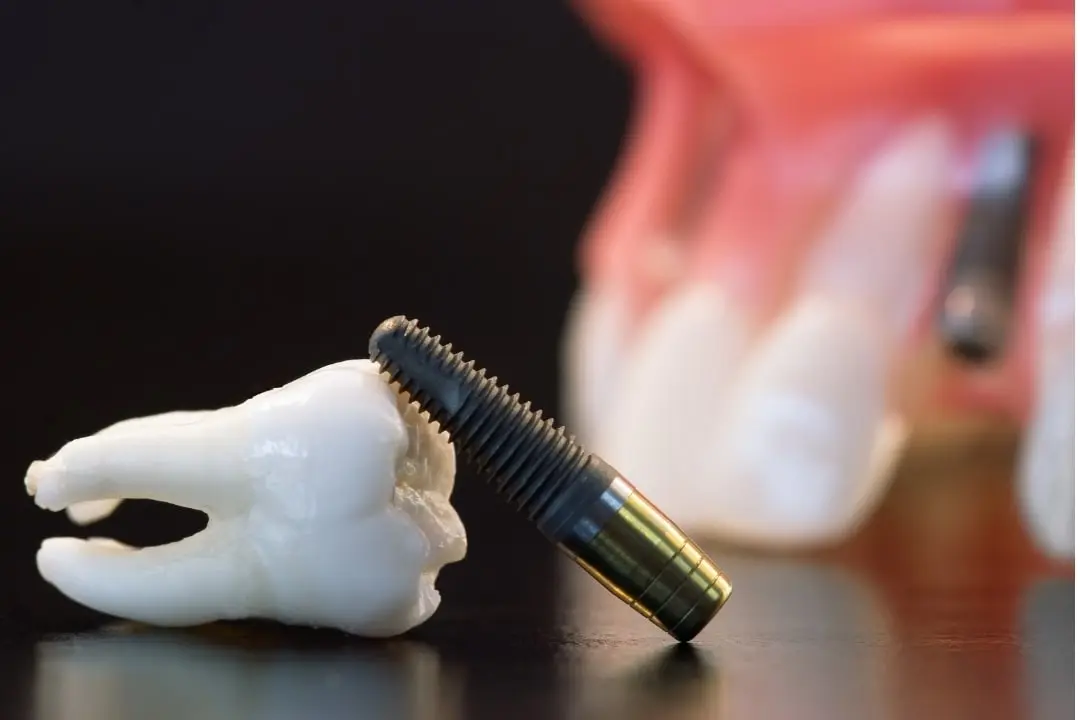Can anyone get dental implants?
Dental implants are long-lasting artificial teeth that replace missing teeth and provide results that closely resemble natural teeth in terms of aesthetics and functionality. They are typically made of biocompatible titanium or ceramic dental implants. When your teeth fall out or need to be extracted, dental implants can be an excellent solution. However, not everyone may be suitable for dental implants.

The success of implant treatment depends on the person's oral and dental health, the health of the gums, and the condition of the jawbone. Most adults can get dental implants, but some medical conditions or ways of life may make it harder. For example, people who don't have enough bone structure or have gum disease that is still going on may not be good candidates for implants.
If you are not a suitable candidate for dental implants, your dentist may suggest alternative treatment options such as bridges or dentures. You can contact our Simena Dental Clinic in Antalya to determine whether you are suitable for dental implants.
Who is a good candidate for dental implants?
Dental implants are an ideal treatment option for people who have lost teeth or need to have teeth extracted. Generally, people who are healthy and do not have bone disorders are suitable candidates for dental implants. Dental implants are designed to replace natural teeth not only aesthetically but also functionally. Implants can be used to replace teeth lost due to decay, trauma, or other reasons.
Suitability for dental implant treatment is assessed on an individual basis. The best way to determine if you are suitable for implant treatment is to make an appointment with one of our dentists at Simena Dental. The following conditions may help you determine if you are suitable for dental implants:
- If you have missing teeth or are planning to have teeth extracted,
- If you are in good general health or have manageable medical conditions,
- If you have a healthy jawbone with sufficient bone volume,
- If your gums are healthy,
- If you can adapt to the treatment process, which may take several months.
If you can answer yes to most of these conditions, dental implants may be a suitable option for you.
When are dental implants not recommended?
- Advanced periodontal disease
- Insufficient jawbone density
- Smoking (including e-cigarettes and tobacco)
- Alcohol and drug use
- Uncontrolled diabetes
- Patients who have undergone radiation therapy to the jaw area.
- Any blood or bone disorders
- Bruxism
Dental implants and gum disease
You must be in good oral health to receive dental implants. Tooth implant treatment is not recommended if you have active gum disease. Gum disease poses a risk of infection in the gums, which can hinder the implant process. Infection there can lead to peri-implantitis. This can damage the supporting structures of natural teeth and lead to implant failure.
Implants and insufficient bone density
For successful tooth implant treatment, the jawbone must have sufficient density. Insufficient bone volume is one of the most common reasons for implant failure.
Factors such as long-term missing teeth, advanced gum disease, or jaw trauma can lead to jawbone shrinkage (osteoporosis). In this case, there may not be sufficient bone volume for implant placement. However, this is not a deterrent; techniques such as bone grafting can address this deficiency. The health of your jawbone is a critical factor for the safe placement of an implant.
Dental implants and smoking
Dental implant treatment is more difficult and risky for smokers.
Smoking creates dryness in the mouth, which prevents the gums and jawbone from healing. Because saliva is responsible for cleaning bacteria from the mouth, dryness can lead to cavities and gum disease. This weakens the tissues surrounding the implant and prevents osseointegration between the jawbone and the implant.
The first few weeks after implant treatment are a critical period during which the bone begins to fuse with the implant. For these reasons, smoking during this period increases the risk of infection and can negatively impact the post-treatment dental implant process.
How can you tell if an implant is right for you?
Before starting dental implant in Antalya, Turkey, the first step in determining whether this treatment is right for you is to have an initial consultation with your dentist.
Your dentist will look over your medical history and do a full clinical exam to see if you are a good candidate for implant treatment.
If you are a good candidate, your dentist will tell you what kinds of implants are best for you and how the treatment will work. They will also find out if you need any extra treatments before the implant procedure, like bone grafting, sinus lift, or hygiene treatment.
If you are not a good candidate for implant treatment, your dentist may suggest other options, like bridges or dentures.
